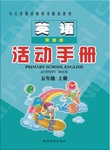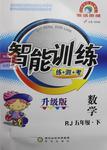题目内容
完形填空
The hospital I work in sits on a beautiful mountain. People often have to walk about 40 kilometres in order to see a ___________ .This is why home-based care comes in. A doctor and several nurses travel out to___________ sick people. Before I go out, I often buy some ___________ for the poor people we will meet as some of them might be hungry. I ___________ buy a bag of sweets for the children every time I go out.
One day, I ___________ at an orphanage(孤儿院).Inside I saw a beautiful little girl, Tanzile. I gave her a sweet from my bag with a(n) ___________ and she asked, “Can I have another one?”I gave her another one and ___________ ,“This little darling is so clever—she has taken two for ___________.”But after I asked her some questions, I was ___________ .Tanzile is 7 years old. Two years ago, both of her parents ___________ in a car accident. Her younger sister who was only three then was taken away by a couple. Ever since then, she has ___________ to accept what people give only to her ___________they give her two.
In fact, we found many things that she had been ___________to give to her sister one day.
I said to her, “You must ___________ it if someone gives you food or something else—even if it is only one piece ___________ two—for your own health.”It was so ___________ for me to fight back the tears as she___________ her head. Her hope and ___________ were all that she had. They ___________ more than anything else.
I hope that Tanzile and the other beautiful children like her will ___________ with their brothers and sisters again.
1.A.result B. doctor C. parent D.friend
2.A.help B. surprise C. encourage D. protect
3.A.clothes B. medicine C. food D. water
4.A.hardly B. still C.never D. also
5.A.stopped B. hid C. survived D. danced
6.A.wish B. smile C.plan D. idea
7.A.guessed B. believed C. thought D.imagined
8.A.myself B. yourself C. herself D.themselves
9.A.interested B. pleased C. scared D. surprised
10.A.died B. tried C. fought D. cried
11.A.pretended B. refused C. hoped D. dreamed
12.A.although B. if C. once D. unless
13.A.developing B. choosing C. collecting D. making
14.A.want B. check C. eat D.accept
15.A.more than B. together with C. except for D.instead of
16.A.hard B. sorry C. funny D. strange
17.A.shook B.hit C. touched D. pressed
18.A.honesty B. attitude C.love D. humour
19.A.cared B. mattered C. cost D. earned
20.A.show up B.get along C. get together D. go out
 互动课堂系列答案
互动课堂系列答案 激活思维智能训练课时导学练系列答案
激活思维智能训练课时导学练系列答案
